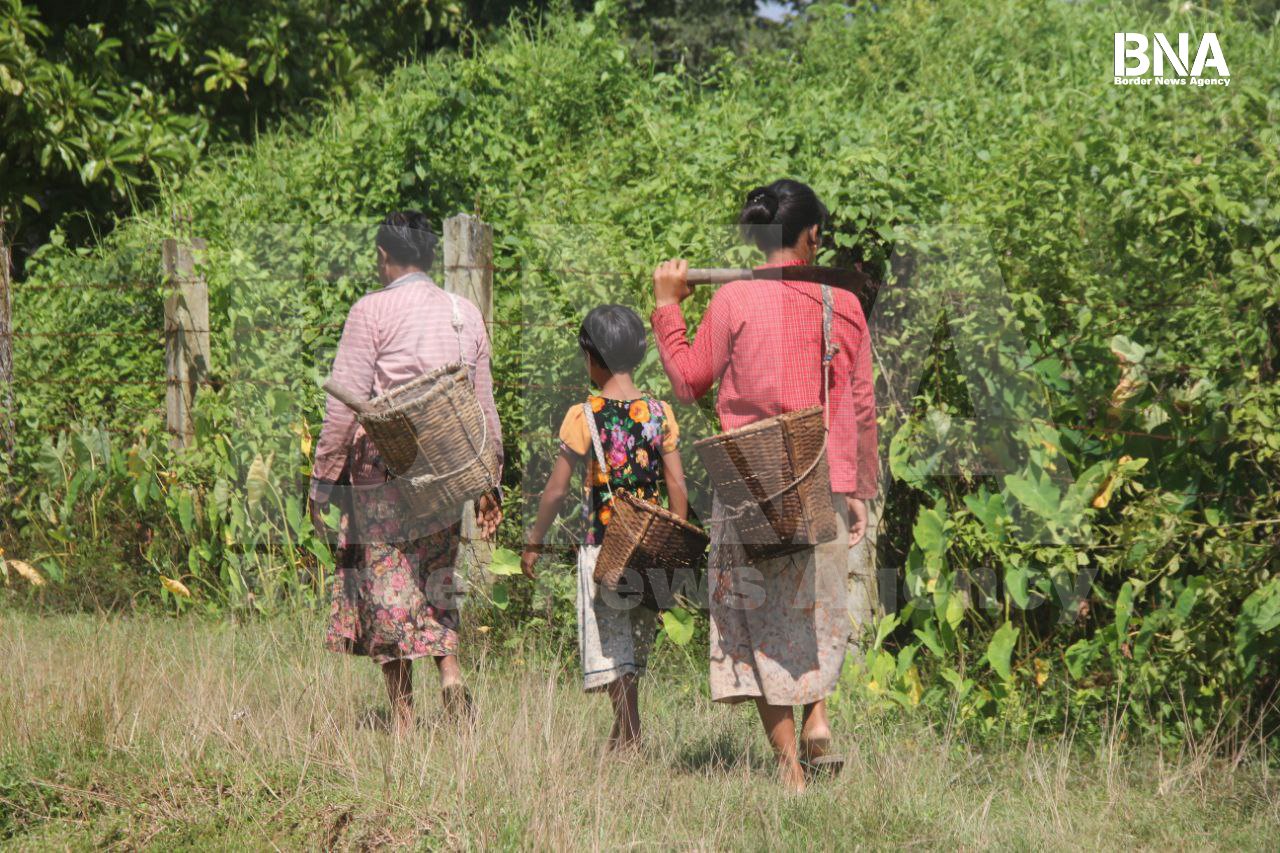Border News Agency
Minbra, May 24
Women in Arakan are facing a lack of safety and security, according to women and women’s rights activists.
In areas controlled by the Arakan Army (AA), the Arakan People’s Revolutionary Government has been implementing administrative mechanisms and providing protection and security for the people, according to local residents.
However, since women are still lacking safety and security, women’s rights activists say that it is necessary to establish legal protections to ensure their safety.
“When we talk about the current situation, people close to us are saying that we are not safe. Even within women’s groups, there are voices of criticism and concern about the lack of security. So the question is how we can work towards ensuring safety. What efforts should we make? Most importantly, when drafting laws, they need to be written and enacted thoroughly and clearly,” said Daw Nyo Aye, Chairperson of the Rakhine Women’s Network, in an interview with Border News Agency.
Among the more than 550,000 internally displaced persons (IDPs) in the Arakan region, nearly 360,000 are women, making up around 57 percent of the total IDP population.
These women are living in fear and insecurity, both physically and mentally. Some have also been subjected to violence and killings, leading displaced women to say that they are living without safety or protection.
In Pha Pyo village, Minbra Township – an area under the control of the Arakan Army – a nine-year-old girl was raped and murdered on April 6.
Women say that such incidents highlight the lack of safety for women in the Arakan region and have caused widespread fear and anxiety among them.
“Regarding this child rape case, we want the Arakan Army to take effective action, like major countries would. When something happens, we don’t even know who to rely on,” a woman from Arakan told Border News Agency.
In addition, it was officially announced on May 22 that the Arakan Army had issued a National Defense Emergency Provision (NDEP) across all areas under its control, starting from March 18.
According to the emergency provision, all women aged between 18 and 25 are subject to military service, and the Arakan People’s Revolutionary Government has restricted their movement outside the Arakan region.
It also stated that those who violate the provision will be dealt with under the existing laws.
Women in the Arakan region have expressed differing opinions and disagreements regarding the military conscription provision, with some saying they do not accept or support the decision.
“To be honest, we don’t accept forced conscription. These young girls, who haven’t even developed a fighting spirit yet, don’t want to go themselves. Their parents don’t want to send them either. People are already afraid whenever they hear the word ‘military.’ Right now, people are working day and night just to afford two meals a day – those who are interested [in serving] can’t be stopped, but forcing those who cannot leave due to various circumstances is a violation of human rights by our own people. We don’t accept this kind of coercion,” a woman from Rathedaung Township told Border News Agency.
The Arakan Army is close to completely controlling the entire Arakan region, with only three townships – Sittwe, Kyaukphru, and Manaung – still remaining outside their control. Fighting is ongoing in Kyaukphru Township.
The Myanmar junta is violating the basic human rights and citizenship rights of the Arakan people, including internally displaced persons, by restricting their freedom of movement, according to local residents.
On October 31, 2000, United Nations member countries adopted a resolution emphasizing the special importance of ensuring the peace and security of women in conflict-affected areas.
In United Nations Security Council Resolution 1325 (UNSCR 1325), member states of the UN Security Council are responsible for implementing and upholding key principles including women’s participation, protection of women and children, prevention of conflict, and relief and recovery efforts.
In the final phase pf the Arakan war, women have been left without safety and protection, as well as lacking assistance and support. However, under the administration of the Arakan People’s Revolutionary Government, they are facing and overcoming these difficulties, according to women in the region.






